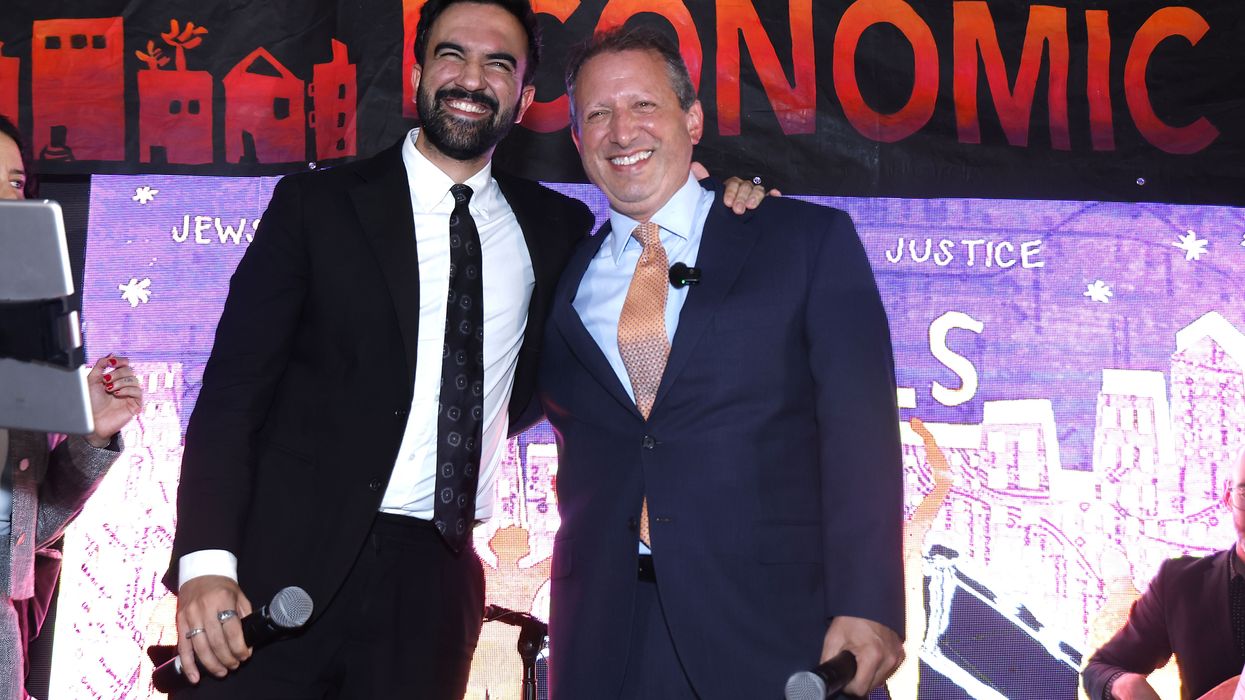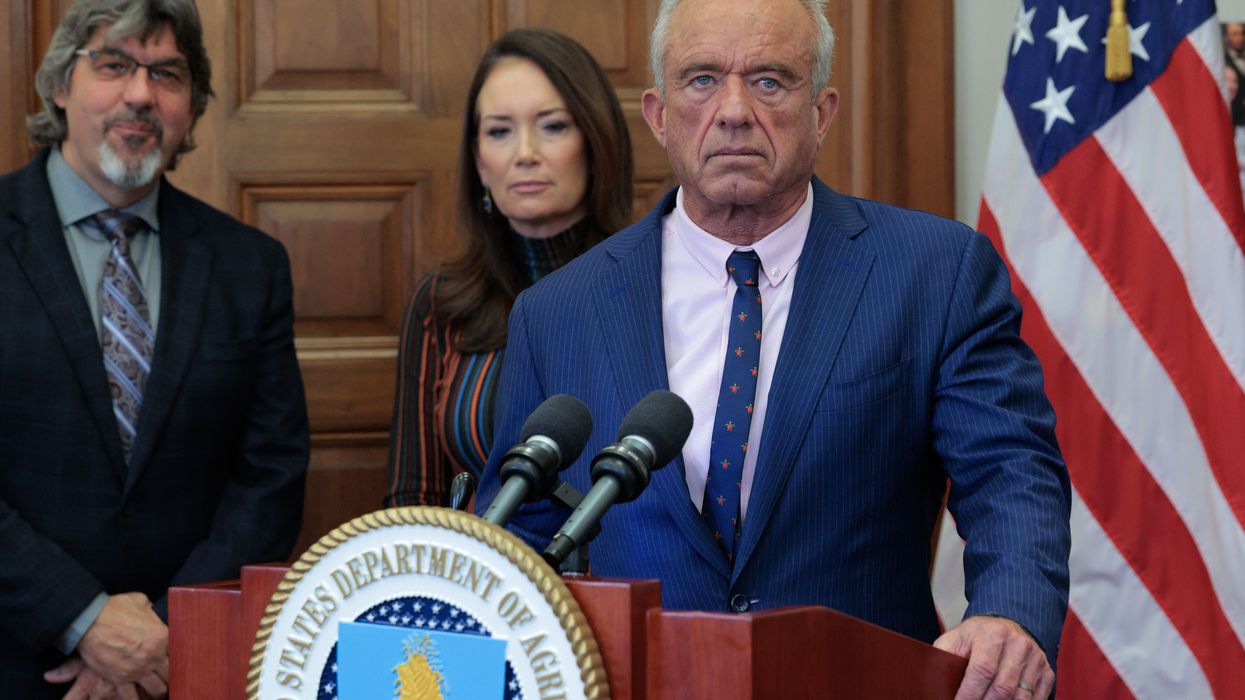January, 20 2011, 03:02pm EDT
New Report Finds Bank Carbon Principles Did Not Curb Financing of Coal
Rainforest Action Network Report Finds Implementation of the Carbon Principles Lacking
SAN FRANCISCO
Today Rainforest Action Network (RAN) released The Principle Matter: Banks, Climate & The Carbon Principles,
a new report assessing the impact of the much-lauded 2008 Carbon
Principles signed by six of the country's leading banks. In reviewing
bank investment from January 2008 to June of 2010, the report found that
there is no evidence that the Carbon Principles stopped or slowed
financing to carbon-intensive projects. In addition, the report found
that there is no evidence that the Carbon Principles spurred investment
in clean energy in greater levels.
Three leading banks, Citi, JPMorgan Chase and Morgan Stanley
announced the Carbon Principles in February 2008. The Carbon Principles
were the outcome of a nine-month bank led process to evaluate and
address carbon risks in the financing of electric power projects in the
United States. The Carbon Principles represent the first time that
financial institutions jointly committed to advance a consistent
approach to the issue of climate change in the U.S. electric power
industry. Since the Principles were released, Wells Fargo, Bank of
America and Credit Suisse have subsequently become signatories.
"The Carbon Principles were a significant step in establishing
carbon risk as important for banks to consider. Based on the serious
threat posed by global climate change, however, it is time leading
financial institutions develop a more robust framework of policies and
practices that concretely reduce emissions from electric power," said
Amanda Starbuck of Rainforest Action Network.
When the Carbon Principles were created, they were one of the first
industry-wide statements from the banking sector specifically addressing
climate change and carbon-intensive investments. The Principles were
designed to address the risks associated with regulatory uncertainty of
carbon emissions, and were also a direct response to growing public
concern over plans for more than one hundred new coal-fired power
plants.
RAN's report compared the financing of major utilities building new
coal fired power plants over a two year period and found that there was
no discernable difference in financing patterns between banks that
signed on to the Carbon Principles and those that did not. The report
did find that the Carbon Principles placed stricter due diligence
conditions on banks for financing the construction of new coal fired
power plants in the United States.
"In short, have the Carbon Principles restricted financing to
coal-fired power plants or encouraged greater levels of clean energy
investments? Sadly, the answer is no," continued Starbuck. "Our research
reveals that, while the broader economy has been shifting away from
coal for myriad reasons, if the Carbon Principle banks want to take
leadership in addressing coal and climate change in the financial sector
they must do more."
As a case study, RAN's report reviewed the financing of two American
Municipal Power (formerly AMP-Ohio) coal-fired power plants, which were
both funded by banks that signed on to the Carbon Principles. Needing
to secure nearly $4 billion from a bond placement for one of the plants,
AMP contacted JPMorgan in early 2008 with concerns regarding how the
Carbon Principles might affect the company's ability to raise capital.
On February 7, 2008, a response from JPMorgan, which was leaked to the
press, assured AMP that "[n]othing in the Principles prevents us from
underwriting debt or providing financing for AMP-Ohio's projects or is
intended to do so."
The RAN report recommends that leading financial institutions
develop a more robust framework of policies and practices to address
climate risk, which would include:
- Performance, not just procedural, standards for financial transactions and client engagement
- Phase out support for new and existing coal-fired power plants
- Phase out support for new and existing coal extraction and delivery projects
- A commitment to dramatically increase support for financing
emissions reduction technology, renewable energy production and energy
efficiency in all business lines
In compiling this review, RAN compared Carbon Principles with
non-Carbon Principles bank underwriting in the U.S. electricity sector;
reviewed signatory bank reporting of Carbon Principles implementation;
interviewed bank and civil society participants in the Carbon Principles
process; and examined alternative policy frameworks.
The full report and supporting data can be found at ran.org/carbonprinciples
Rainforest Action Network (RAN) is headquartered in San Francisco, California with offices staff in Tokyo, Japan, and Edmonton, Canada, plus thousands of volunteer scientists, teachers, parents, students and other concerned citizens around the world. We believe that a sustainable world can be created in our lifetime and that aggressive action must be taken immediately to leave a safe and secure world for our children.
LATEST NEWS
'Relentless Fighter for Working People': Mamdani, Sanders Back Lander Bid for US House
"I’m running for Congress because we need leaders who will fight, not fold," said Brad Lander, who is aiming to unseat Democratic Rep. Dan Goldman.
Dec 10, 2025
Outgoing New York City Comptroller Brad Lander announced Wednesday that he is running to unseat Democratic US Rep. Dan Goldman, a primary bid launched with the support of New York City Mayor-elect Zohran Mamdani and the nation's most prominent progressive lawmaker, Sen. Bernie Sanders.
"I’m running for Congress because we need leaders who will fight, not fold," Lander wrote in a social media post announcing his run to represent New York's 10th Congressional District.
Lander's campaign launch comes after a closely watched mayoral race in which he and Mamdani endorsed each other during the primary process—a strategic alliance aimed at ensuring the defeat of former New York Gov. Andrew Cuomo under the city's ranked-choice voting system.
Goldman, who was elected to Congress in 2023, did not endorse Mamdani after he prevailed in the mayoral primary.
In a statement on Wednesday, Mamdani said that "Brad’s unwavering principles, deep knowledge, and sincere empathy are what make him a true leader."
"He has been a trusted ally and partner of mine," the mayor-elect added, "and I’m proud to support him as I know he’ll continue delivering for those who need government to show up for them the most."
"He and Zohran Mamdani proved that when ordinary people stand united, we can take on the billionaire class, and we can defeat corporate-dominated politics."
Sanders, a key early backer of Mamdani's bid to lead New York City, joined the mayor-elect in endorsing Lander, calling him a "relentless fighter for working people."
"He’s spent the past two decades taking on big corporations, winning better wages and fair working conditions for New Yorkers, including major victories for fast food workers, delivery workers, and tenants," the senator said. "During the recent mayoral election, he and Zohran Mamdani proved that when ordinary people stand united, we can take on the billionaire class, and we can defeat corporate-dominated politics."
"Brad Lander is a public servant who will bring a much-needed voice to Congress," Sanders continued. "He will deliver for the people of New York and all working-class Americans. I am proud to endorse him."
Lander also secured the day-one support of US Sen. Elizabeth Warren (D-Mass.), New York City Public Advocate Jumaane Williams, and the New York Working Families Party (NYWFP).
“We know that as congressman, Brad Lander will continue to lead the fights to protect immigrants, to stand up for workers, and to make New York a place where working families can afford to live and thrive," said Ana María Archila and Jasmine Gripper, co-directors of NYWFP. "And most of all, we know he will continue to build a movement strong enough to defeat Donald Trump and the forces of authoritarianism by practicing a kind of politics that makes a true, multi-racial democracy possible."
"These are uncharted times—and we know Brad Lander has what it takes to represent NYers in Washington," they added. "We are all in and ready to win!"
Keep ReadingShow Less
Skeptics Warn of Greenwashing as Trump Admin Launches Regenerative Agriculture Pilot
One campaigner emphasized that the administration "continues to cut conservation staff, support the pesticide industry, roll back environmental laws, and play trade war games."
Dec 10, 2025
The announcement of the US Department of Agriculture's $700 million Farmers First Regenerative Agriculture Pilot was met with some skepticism on Wednesday, given other recent moves that conflict with the Trump administration's promises to "Make America Healthy Again."
Regenerative agriculture is an approach to farming and ranching that goes beyond sustainability, aiming to improve soil, water, and air quality; boost biodiversity; produce nutrient-dense food; and even help mitigate the climate emergency by storing carbon. Its practices include agroforestry, conservation buffers, cover cropping, holistically managed grazing, limiting pesticides and synthetic fertilizers, and no-till farming.
US Secretary of Agriculture Brooke Rollins announced the pilot alongside Centers for Medicare and Medicaid Services Administrator Dr. Mehmet Oz and Health and Human Services Secretary Robert F. Kennedy Jr., the controversial man behind the MAHA movement. She said that "we will deliver this support through existing programs our farmers already know and already trust."
Angela Huffman, president and co-founder of the group Farm Action, a longtime advocate of regenerative farming, welcomed the pilot, noting that "done right, this investment will help farmers lower their input costs, break free from the export-driven commodity overproduction treadmill, and move toward healthier, more resilient, and more profitable farming systems."
Stephanie Feldstein, population and sustainability director at the Center for Biological Diversity, was far more critical of the initiative, warning that "farmers trying to do the right thing for our environment need all the support they can get, but without clear standards, this ill-defined pilot program isn't enough."
"Regenerative agriculture needs to be more than just buzzwords Big Ag uses to greenwash business as usual," said Feldstein. "While the Trump administration promises money for sustainable practices, it continues to cut conservation staff, support the pesticide industry, roll back environmental laws, and play trade war games that hurt farmers and our food system."
As Spectrum News reported Wednesday:
The USDA regenerative agriculture pilot program flows from a Make America Healthy Again Commission report released in September that included more than 120 initiatives to address chronic childhood disease. One of the report's key focus areas was to remove harmful chemicals from the food supply.
On Wednesday, Kennedy said the report promised farmers an "off ramp" to transition away from chemical fertilizers "to a model that emphasizes soil health, and with soil health comes nutrient density... and a transition to a much healthier America for our children."
When the second MAHA report was released in September, some environmental and public health advocates blasted the commission for echoing "the pesticide industry's talking points," while Alexandra Dunn, CEO of the trade group CropLife America, celebrated that "we were heard" by the Trump administration.
The administration has also come under fire for constantly serving the fossil fuel industry; installing an ex-lobbyist, Kyle Kunkler, in a key role at the Environmental Protection Agency and nominating another, Douglas Troutman, for an EPA post; embracing herbicides including atrazine and dicamba as well as "forver chemical" pesticides; and urging the US Supreme Court to shield Bayer, which bought Monsanto, from lawsuits alleging that glyphosate-based Roundup causes cancer.
As Sarah Starman, senior food and agriculture campaigner at Friends of the Earth, highlighted Wednesday, the Trump administration has also been criticized for cutting billions of dollars in funding previously allocated to promoting regenerative agriculture and firing staff at the Natural Resources Conservation Service.
The pilot, Starman said, "is a step in the right direction, and we applaud the intent. But it will only be effective if USDA reverses the past year of massive cuts to on-the-ground conservation staff. Regenerative agriculture requires whole-farm, science-based planning, and right now the agency lacks the army of specialists needed to help farmers design and implement those plans."
"In addition, phasing out harmful agrochemicals—the synthetic pesticides and fertilizers that harm human health and degrade soil health—must be at the center of any regenerative program," she stressed. "The new initiative's incentives for integrated pest management fall far short of what is needed to help farmers get off the pesticide treadmill and spur a transition to a truly regenerative food system."
"The initiative must be updated to include specific, measurable incentives for deep reductions in agrochemical use if it is to deliver truly healthy, resilient soils and promote human health," she added. "Finally, going forward, all major farm subsidies should carry strong conservation compliance requirements so that every public dollar supporting agriculture also supports soil health, water quality, and climate resilience on every acre."
Keep ReadingShow Less
Trump Plan Would Force Tourists to Share Years of Social Media Posts Before Entering US
One critic predicted the policy would "exacerbate civil liberties harms" if enacted.
Dec 10, 2025
Visiting the US as a tourist could soon become significantly more onerous under a new plan being mulled by the Trump administration.
According to a Tuesday report in the New York Times, US Customs and Border Protection (CBP) this week filed a new proposal that would force visitors to submit up to five years' worth of social media posts for inspection before being allowed to enter the country.
In addition to social media history, CPB says it plans to ask prospective tourists to provide them with email addresses they've used over the last decade, as well as "the names, birth dates, places of residence, and birthplaces of parents, spouses, siblings, and children."
The policy would apply even to citizens of countries that have long been US allies, including the UK, Germany, Australia, and Japan, which have long been exempt from visa requirements.
Sophia Cope, a senior staff attorney for the Electronic Frontier Foundation, told the Times that the CBP policy would "exacerbate civil liberties harms."
Cope added that such policies have "not proven effective at finding terrorists and other bad guys" but have instead "chilled the free speech and invaded the privacy of innocent travelers, along with that of their American family, friends and colleagues."
Journalist Bethany Allen, head of China investigations at the Australian Strategic Policy Institute, expressed shock that the US would take such drastic measures to scrutinize the social media posts of tourists.
"Wow," she wrote in a post on X, "even China doesn't do this."
In addition to concerns about civil liberties violations, there are also worries about what the new policy would do to the US tourism industry.
The Times noted in its report that several tourism-dependent businesses last month signed a letter opposing an administration proposal to collect a $250 "visa integrity fee," and one travel industry official told the paper that the CBP's new proposal appears to be "a significant escalation in traveler vetting."
The American tourism industry has already taken a blow during President Donald Trump's second term, even without a policy of forcing tourists to share their social media history.
A report released on Wednesday from Democrats on the Senate's Joint Economic Committee (JEC) found that US businesses that have long depended on tourism from Canada to stay afloat have been getting hit hard, as Canadian tourists stay away in protest of Trump's trade war against their country.
Overall, the report found that "the number of passenger vehicles crossing the US-Canada border declined by nearly 20% compared to the same time period in 2024, with some states seeing declines as large as 27%."
Elizabeth Guerin, owner of New Hampshire-based gift shop Fiddleheads, told the JEC that Canadians used to make up to a quarter of her custom base, but now "I can probably count the number of Canadian visitors on one hand."
Christa Bowdish, owner of the Vermont-based Old Stagecoach Inn, told the JEC that she feared a long-term loss in Canadian customers, even if Trump ended his feud with the nation tomorrow.
"This is long-lasting damage to a relationship and emotional damage takes time to heal," she said. "While people aren’t visiting Vermont, they’ll be finding new places to visit, making new memories, building new family traditions, and we will not recapture all of that."
Keep ReadingShow Less
Most Popular


